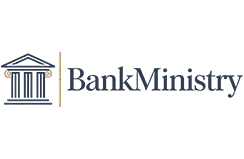Managing your money well is important if you want to be financially stable and reach your personal goals. The idea of banks is at the heart of handling money. Understanding the basics of banking will help you make smart choices, whether you are new to money or want to get better at it. This book will teach you the basics of banking and give you useful advice on how to handle your money wisely.
Do you know what banking is?
People can save, spend, and receive money through banking, which is the services that banks offer. Banks are safe places to keep your money, offer ways to pay, and can give you credit when you need it. You can’t say enough good things about banks. They help people keep their money safe, get it quickly when they need it, and grow their savings through interest. It would be risky and harder to deal with money without banks.
Not all bank accounts are the same
Checking accounts and savings accounts are the two main types of bank accounts that everyone should know about. Checking accounts are made for regular activities like getting cash, paying bills, and making purchases. With debit cards and cash, it’s easy to get to your money. Savings accounts, on the other hand, are meant to help you build up money over time by giving you interest on the money you put. Knowing about these accounts can help you decide how to spend your money based on your short- and long-term goals.
How to Sign Up for a Bank Account and Use It
The steps to open a bank account are simple and only require identification and proof of where you live. You can also start an account at a lot of banks online, which is quick and easy. You can deposit money, set up direct payments from your company, and use debit cards or online banking to make purchases once your account is open. To use your bank account correctly, you should keep an eye on your funds, read your records, and avoid overdrafts and fees.
How to Avoid Bank Fees and What They Are
Many of the time, banks charge fees for things like keeping an account open, using an ATM, going overdrawn, and sending money via wire transfer. If you don’t keep track of them properly, these fees can add up and hurt your finances. It is important to read the fee plans your bank gives you so that you don’t get charged for things you don’t need. There are many ways to avoid fees at many banks, such as keeping a certain amount of money in your account or switching to electronic bills. Over time, you can save a lot of money by being aware of fees and carefully controlling your account actions.
What Interest Rates Do for Banks
Interest rates are a very important part of banking, especially when it comes to loans and savings accounts. The bank gives you interest on your savings account balance, which makes your money grow. When you take money through loans or credit, on the other hand, you have to pay interest to the seller. Interest rates can change a lot based on the economy and how banks run their businesses. If you know how interest works, you can make better choices about how to save money and borrow money, so you can get the most out of both.
How online and mobile banking make managing money easier
The way we use banks has changed a lot because of changes in technology. You can get to your accounts from anywhere at any time with online and mobile banking. On your phone, you can check your balance, move money between accounts, pay bills, and even send checks. These tools make things easier and give you more power over your money. But it’s important to keep your accounts safe by using strong passwords, turning on two-factor authentication, and being careful with your personal data.
Keys to Financial Success: Making a budget and saving
Managing your money well includes more than just banks; it also involves making a budget and saving money. Making a budget helps you see where your money is going and where you can cut back if you need to. Keeping your spending money separate from your savings money in your bank account can help you stick to good habits. Many banks have tools that let you set up regular payments to savings accounts. This can help you stick to your budget. Setting aside time to save makes sure you have money for unexpected costs, big purchases, or investments for the future.
How to Keep Your Money and Identity Safe
In banks, safety is very important. In many countries, banks offer investment insurance to keep your money safe in case the bank fails. Among other things, the FDIC protects savings up to $250,000 in the United States. Also, keeping your financial and personal information safe is very important to avoid scams and identity theft. When you bank online, always use a safe connection, keep an eye on your account activity, and tell your bank right away about any transactions that seem fishy.
How to Get a Bank Loan and When to Use It
For big costs like getting a house or car or paying for school, loans can be very helpful. But you should be careful when you borrow money. Before you take out a loan, make sure you know the fees, interest rate, and length of time you have to pay it back. To avoid stress over money, make sure that the monthly bills are within your means. A good credit score can help you get loans more easily in the future by showing that you can be trusted to pay them back on time.
How to Build a Strong Bond with Your Bank
Your bank can be more than just a place to keep your cash. It can also help you with your money. If you have a good relationship with your bank, you may be able to get better loan rates, personalized financial help, and lower fees. Talk to your bank often, ask questions, and look into services that could help you reach your financial goals. Having a relationship with a bank that you can trust makes handling your money easier and more effective.
Conclusion: Learn about banking to take charge of your money
Banking is an important part of keeping track of your money and planning for the future. To make better decisions, you should know how banks work, the different types of accounts they offer, the fees they charge, the interest rates they offer, and the safety measures they use. A person can be financially successful if they know how to use banks, make a budget, and save money. You can get a better handle on your money by going over your banking choices, setting goals, and making smart use of your accounts starting right now.



